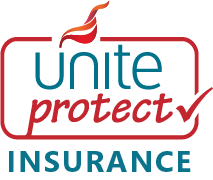We use cookies to give you the best possible online experience. By using our services, you agree to our use of cookies.
Dental plan or health cash plan?
Due a visit to the dentist? These days you'll need more than the tooth fairy's allowance to cover the cost of treatment. Everything from general check-ups to emergency fillings are likely to incur a charge, and if you haven't budgeted for the treatment the bills can often be a significant financial blow.
That's where a health cash plan comes into its own. Like most dental plans, health cash plans pay money back for NHS dental treatments as well as dental emergencies. These can often run into hundreds of pounds, making a big dent in savings. Dental plans may offer a higher level of cover for dental costs but health cash plans have the greater versatility as they also reimburse a wide variety of other paid-for services and treatments, such as trips to the optician, physiotherapist or osteopath. In most cases you'll also get money back towards prescription charges and specialist consultation fees. And some health cash plans also offer access to a 24-hour helpline and counselling services.
As with dental plans, a health cash plan could pay for itself after just a few treatments per year. Consider, for example, that the average cost of a filling comes in at around the £40 - £60 these days. And for anything more complicated - crowns, dentures, bridges and other laboratory work - you'll see this soar to over £240.* With some health cash plans you can claim 100% of this back, up to the maximum benefit allowed per year. Many health cash plans will also offer dental accident emergency cover.
Claiming your cash back couldn't be simpler - usually nothing more onerous than sending off your receipt to the insurer after settling the bill upfront and then a prompt reimbursement, much as you'd expect with a dental plan.
One other thing worth highlighting about both a health cash plan and a dental plan is that they don't work in the same way as private health insurance. The latter usually won't cover pre-existing conditions, whereas a health cash plan provider will rarely demand you complete a medical questionnaire first, although a qualifying period may apply before you're entitled to claim some of the benefits. This makes it an especially attractive proposition if your teeth have tended to cause problems in the past, or if your family history makes you more likely to require dental work in future. And because health cash plans often have flat-rate premiums until you're aged 65, you won't have to fork out extra for the cover as you get older.
But the best thing about health cash plans? As we alluded to earlier, it's the sheer range of everyday medical expenses that you can recoup. Fretting over your feet? A chiropodist visit could be significantly cheaper with the policy. Just had a baby? Then you might be entitled to a one-off payment for the new child. Need to replace your old prescription specs? Health cash plans cover these costs. In many instances, even hospital car park fees can be refunded.
Put plainly, health cash plans work a whole lot harder than dental insurance alone. They offer nearly all the benefits of the latter, plus a host of other routine treatments and therapies on top. Health cash plans can be a helping hand when everyday medical expenses start to mount up, meaning you can keep your fingers out of the savings pot.
Find out more about the Unite Health Cash Plan, visit https://www.unioninsurance.co.uk/products/health-cash-plan/unite
*NHS dental changes, 2017





